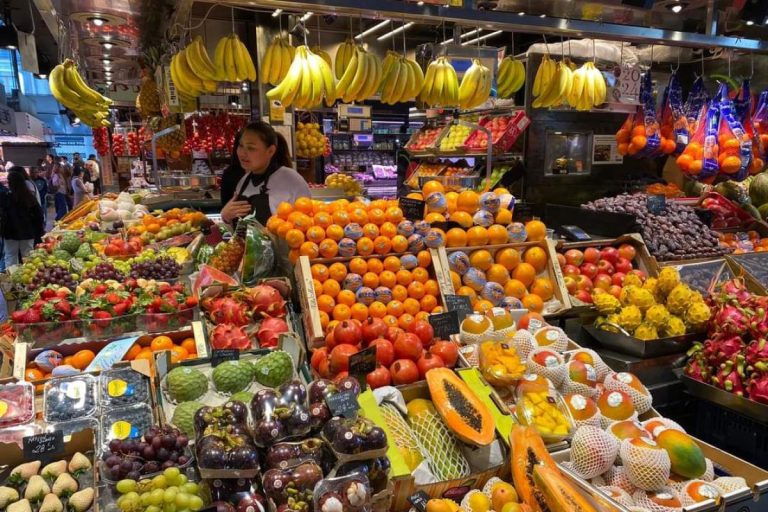JANUARY, commonly known as “vegan”, promotes the vegan lifestyle by encouraging people to follow the diet of the month.
A vegan diet has enormous health, moral and ethical benefits and I would like to reach out to everyone in our community to provide you with information on how it can improve your well-being.
A vegan diet is plant-based.
Vegans do not eat foods that come from animals, including dairy and eggs.
For moral and ethical reasons, veganism aims to support animal welfare by eliminating all forms of animal exploitation and cruelty.
It’s becoming one of the fastest growing lifestyle choices.
In the UK, around 542,000 people are vegan and the number of people practicing veganism has increased by 350% over the last decade.
The vegan movement is growing fastest among the younger population, with 42 percent of vegans in the UK aged 15 to 34, compared to just 15 percent over 65.
Vegans are less likely to be overweight or obese.
They have a lower body fat percentage, which reduces the risk of heart disease, high blood pressure, high cholesterol, non-alcoholic fatty liver disease and bowel cancer.
Vegan diets are associated with a lower risk of developing type 2 diabetes because they tend to be lower in saturated fat and higher in fiber, fruits, vegetables, and other protective substances like phytochemicals and antioxidants.
As a result, veganism fits well with dietary guidelines for people with diabetes.
The health benefits are seen through the harmful effects of meat consumption.
The World Health Organization (WHO) recently recommended a reduction in the consumption of red and processed meat, based on consistent evidence linking the two to colorectal cancer.
Additionally, high consumption of red meat is associated with an increased risk of ischemic heart disease, high blood pressure, pneumonia, diabetes, diverticular disease, and colon polyps.
Eating too much liver can lead to high levels of vitamin A, which increases the risk of bone fractures, especially in older adults.
A healthy and balanced diet can easily be achieved through veganism.
However, without careful dietary planning, vegans risk suffering from deficiencies in certain food groups and nutrients more commonly found in animal products.
These include protein, iron, vitamin B12, calcium, vitamin D, iodine and selenium.
Meat is not the only source of protein: high sources can be obtained from soy products, such as tofu and edamame, chickpeas, beans, legumes, nuts, lentils and yeast.
Dietary iron, necessary for the formation of healthy bone marrow, can come from vegan products such as dark green leafy vegetables, whole-wheat bread and flour, black-eyed peas, tofu and dried fruit.
Low levels of vitamin B12 can cause anemia and nerve damage.
Natural sources of vitamin B12 are limited for vegans, but they can come from fortified breakfast cereals, plant-based milk, and nutritional yeast products such as Marmite.
Additionally, taking B12 supplements is recommended to ensure sufficient intake.
Good sources of calcium for vegans, necessary for maintaining healthy bones and teeth, include broccoli, okra and cabbage.
Legumes, sesame seeds, tahini and dried fruits are also rich in calcium.
In the United Kingdom, calcium is added to flour used to make brown and white bread.
Vitamin D can be obtained through safe exposure to sunlight, fortified breakfast cereals, soy drinks, and taking supplements.
Your body needs iodine to make thyroid hormones that control your metabolism.
Iodine is a trace element found in seawater, rocks and certain types of soil. The content of foods therefore depends on the quantity present in the soil or water from which they come.
Plant foods containing iodine include whole grains, green beans, zucchini, kale, spring greens, watercress, strawberries, and organic potatoes with skins.
Additionally, seaweed absorbs iodine from seawater and is an excellent source. Selenium is a trace element that is an essential component of enzymes that help make DNA and thyroid hormones.
It also protects against cell damage and infections.
The main plant sources of selenium are fortified bread and cereals.
Other sources include Brazil nuts, sunflower seeds, sesame seeds, whole grains, tofu, asparagus and mushrooms.
If you are vegan and pregnant or breastfeeding, you need to make sure you get enough iron, vitamin B12, vitamin D, calcium and iodine.
If you are raising your baby or child on a vegan diet, you need to make sure they eat a wide variety of foods to provide them with the energy and vitamins they need for growth.
I urge all patients seeking advice on the health effects of veganism to consult their GP.
Our columnist, Dr Jason Seewoodhary, is a former GP from Worcestershire.


